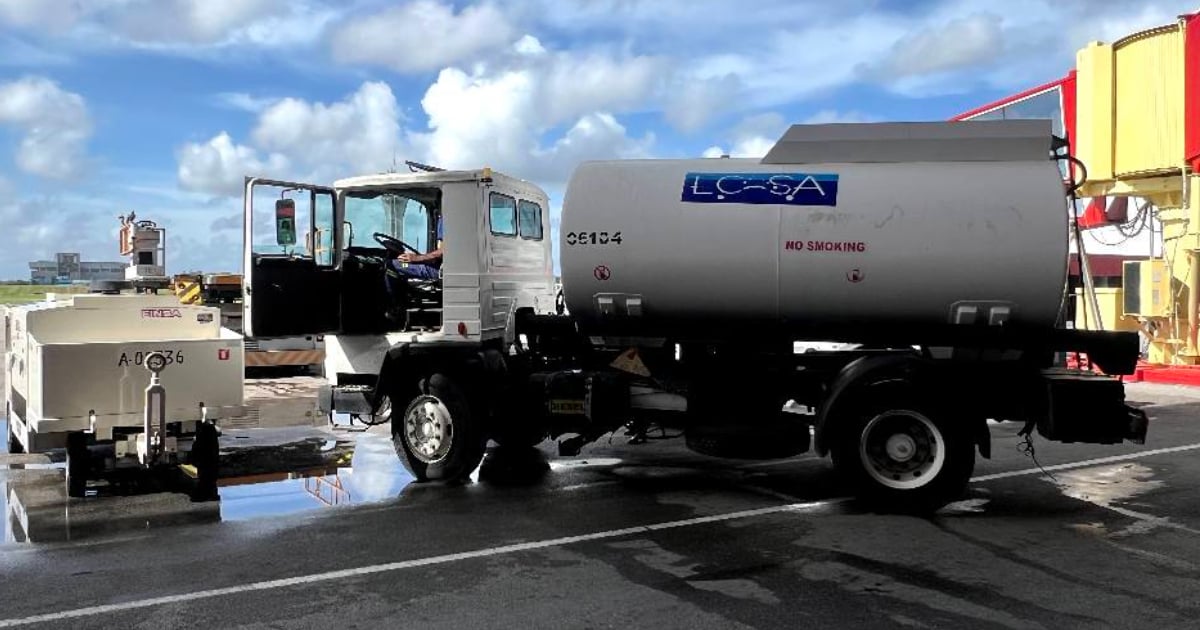An oil tanker carrying JET A1 fuel for aircraft has docked at the port of Havana, as announced by the company CUPET through the National Television News (NTV). This shipment is expected to sustain Cuba's aviation operations throughout December and into the early days of January, temporarily alleviating the severe fuel shortage impacting the nation's airports.
"A ship unloading JET A1 fuel for aircraft in Havana is confirmed to meet demand for the entire month of December and the start of January," shared the state-aligned journalist Lázaro Manuel Alonso on his social media platforms.
The arrival of this shipment comes at a critical juncture, as reports had emerged just days prior indicating that Cuban airports were on the brink of running out of fuel for international airlines. On November 30th, sources noted that multiple airports, including those in Varadero and Havana, were operating on minimal JET A1 supplies, restricting refueling to domestic flights and forcing some international flights to seek alternative refueling options outside the country.
Following a wave of denials from regime supporters on social media, the Cuban Institute of Civil Aeronautics (IACC) retracted an earlier notification that warned international airlines of the fuel scarcity. This decision was made after confirming the arrival of the shipment that would support aviation operations.
Nevertheless, industry experts highlight that this move underscores the precarious state of fuel supplies in Cuba. The shortage of JET A1 fuel is not an isolated issue but part of a broader energy crisis plaguing the nation. A decline in oil and derivative imports, coupled with internal logistical challenges, has adversely affected not only air transport but also ground transportation and electricity generation.
Throughout November, the fuel shortage led to flight cancellations and schedule delays, further complicating the economic and logistical landscape of the country. While the arrival of the tanker provides temporary relief, experts caution that the declared supply will only last for a month and a few days, leaving uncertainty about future aviation operations.
The authorities have yet to disclose the origin of the shipment or outline long-term plans to ensure a steady supply of aviation fuel. This situation highlights the urgent need for structural solutions to address the logistical and energy challenges facing the island. Meanwhile, Cuba is in a race against time to secure new agreements to prevent the collapse of its aviation operations.
Cuba's Aviation Fuel Crisis: Key Questions Answered
What type of fuel was delivered to Havana?
The shipment delivered to Havana contained JET A1 fuel, which is used for aircraft.
How long will the current fuel supply last?
The current supply of JET A1 fuel is expected to last through December and into the early days of January.
Why are Cuban airports facing a fuel shortage?
The fuel shortage at Cuban airports is part of a larger energy crisis, exacerbated by reduced oil imports and internal logistical difficulties.
